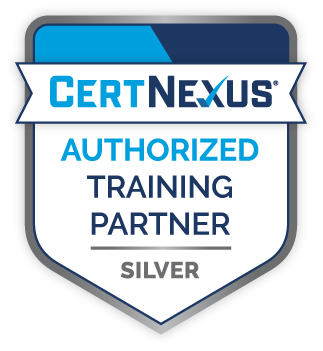| Date | Venue | Fee | |
|---|---|---|---|
| 28 Sep - 02 Oct 2026 | London - UK | $ 5,950 | Register Now |
| 21 Dec - 25 Dec 2026 | Dubai – UAE | $ 5,950 | Register Now |
About the Course
The Certified Ethical Emerging Technologist™ (CEET) industry-validated certification helps professionals differentiate themselves from other job candidates by demonstrating their ability to ethically navigate data-driven emerging technologies such as AI, Machine Learning, and Data Science.
Organisations and governments seek ethics professionals to minimise risk and guide their decision-making about the design of inclusive, responsible, and trusted technology. An algorithm not designed and assessed in alignment with ethical standards can create further inequity across race, gender, and marginalised populations. The reputational and financial impact of an ethics violation can devastate a company. Knowledgeable ethics leaders are those who can navigate through the more than 160 frameworks and guidelines to select and implement the best strategy to promote fairness and minimise risk for their organisation. This programme is designed for delegates who want to create and lead initiatives prioritising ethical integrity within emerging data-driven technology fields such as artificial intelligence and data science and will be prepared to bridge the gap between theory and practice.
Delegates will create a portfolio of assets highlighting their skills as ethical leaders. The assets consist of written documents and video communications required of ethical leaders, including Op-Ed articles, risk management reports, strategy memos, media releases, and video press briefings.
Core Objectives
The delegates will achieve the following objectives:
- Apply ethical principles, frameworks, regulations, and standards utilised in data-driven technologies
- Analyse the challenges that may compromise their implementation
- Detect and mitigate ethical risks in the design, development, and deployment of data-driven technologies
- Communicate effectively with diverse stakeholders about ethical safeguards, ethical risks, and mitigation strategies
- Create, implement, and evaluate the organisational policies and governance structure required for ethical data-driven technologies
Training Approach
The delegates will be taught through learning techniques that ensure maximum understanding, comprehension, and retention of the information presented. The training methods will vary depending on their needs, from front-end to blended learning. It is divided through information received, participation, and Learning by Doing to provide the highest level of apprehension and retention of the presented material. They will be working on case studies and doing a hands-on project, and at the end of the training course, they will be assessed to determine the level of knowledge they have retained.
The Attendees
Delegates will create a portfolio of assets highlighting their skills as ethical leaders. The assets consist of written documents and video communications required of ethical leaders, including Op-Ed articles, risk management reports, strategy memos, media releases, and video press briefings.
Delegates who complete the Honors projects will also author an industry feature article, a recommendation memo for the most appropriate ethical framework to guide an organisation or a project, an Algorithmic Impact Assessment, a change management presentation to a Board of Directors, and a strategic business document such as a cost-benefit analysis, design plan, or business continuity plan.
Moreover, it is also designed to assist delegates in taking the CertNexus Certified Ethical Emerging Technologist™ (CEET) Exam CET-110.
Likewise, it will be valuable to the professionals but not limited to the following:
- Programmer
- Data Analyst
- IT Managers
- Data Scientists
- Anyone who would like to become certified in Emerging Technology
Daily Discussion
DAY ONE: PROMOTE THE ETHICAL USE OF DATA-DRIVEN TECHNOLOGIES
- Identify Data-driven Emerging Technologies
- Ethics Make a Difference in Emerging Technologies
- Examine legal and ethical privacy concepts as they relate to data-driven technology
- The Question of Data Ownership
- Examine Types of Biases
- The Impact of Bias on Emerging Technologies
- Examine Common Ethical Theories
- Thinking about Right and Wrong
- Examine Ethical Principles that Apply to Data-driven Technology
- Ethics as a Benefit and Strategic Differentiator
DAY TWO: TURN ETHICAL FRAMEWORKS INTO ACTIONABLE STEPS
- Apply frameworks to your ethical responsibilities for data-driven technologies
- The Importance of Ethical Frameworks
- Apply an ethical framework to navigate an ethically challenging dilemma
- What Actions to Take in Emergency and Disaster Scenarios?
- Follow Regulations and Standards that have an Impact on Business Strategy
- The Code of Fair Information Practices
- Reconcile Conflicts between Ethics, Regulations, Societal Needs, and Business Demands
- The Challenge of Reconciling Competing Obligations
- Use of Collected Data vs Integrity
- Availability of Datasets for ML Algorithms vs Privacy Protection
DAY THREE: DETECT AND MITIGATE ETHICAL RISKS
- Ethical Risk Analysis Fundamentals
- The Importance of Managing Risks
- Manage Privacy Risks
- Identify Personally Identifiable Information (PII)
- Manage Accountability Risks
- Extrajudicial Judgment
- Manage Transparency and Explainability Risks
- Identify Algorithmic Decisions
- Manage Fairness and Non-discrimination Risks
- Manage Safety and Security Risks
DAY FOUR: COMMUNICATE EFFECTIVELY ABOUT ETHICAL CHALLENGES IN DATA-DRIVEN TECHNOLOGIES
- Communicate the Business Impacts of Ethical Risks to Diverse Stakeholders
- Communicate Ethical Risks
- Business Impact Assessments
- Design Diverse, Equitable, and Inclusive External Communication Strategies
- Diverse, Equitable, and Inclusive Communication Strategies
- Organisational Philosophy
- Manage a Crisis, Communicate Critical Messages, and Ensure Business Continuity
- Manage the Media During an Ethical Crisis
- Media Communication Plans and Tools
- Feedback Monitoring and Response
DAY FIVE: CREATE AND LEAD AN ETHICAL DATA-DRIVEN ORGANISATION
- Promote an Ethical Organisational Culture
- Ethical Organisational Culture
- Leadership Championing
- Maintain Ethical Considerations in Governance and Policy Making
- Shared Principles from Common Ethical Frameworks
- Develop and Deploy a Code of Ethics
- Potential Impediments to Changes in Ethical Practices
- Develop and Deploy Ethical Organisational Policies
- Identify Need and Policy Owners
- Establish Procedures to Support the Policy
Certificate Awarded
Upon successful completion of this training course, participants will be awarded a Certificate of Completion from XCalibre Training Centre, acknowledging their accomplishment. This certificate serves as a testament to their dedication to developing their skills and advancing their expertise in their respective fields.

Course Enquiry

A CertNexus Certification will be given to the delegates upon successful completion of this training course.

A XCalibre Professional Development Certification will be given to the delegates upon successful completion of this training course.

